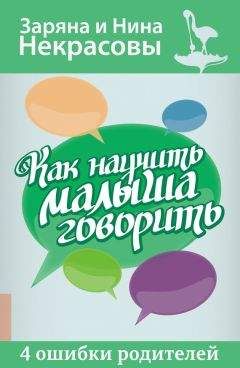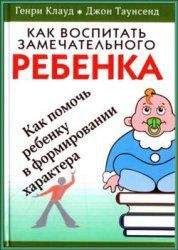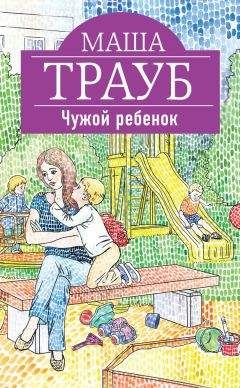Leo Frankowski - CONRADS QUEST FOR RUBBER
Like I told you before, fighting fair is fighting stupid.
I saw hundreds of Mongols die that way, but a few hundred was just a few, compared to the huge numbers of people involved in that battle. Most of them ran away, or tried to, since we had them surrounded, even if they were a while finding it out.
It was a run of several miles, in armor, and we were carrying our heavy pikes, but we were trained for it. As we ran, the circle got shorter and shorter, and our lines, five men deep at first, got thicker and thicker. Eventually, there was a great seething mass of mounted men, I don't know how big around, and they were surrounded by a mass of army troops at least three dozen men deep, pushing them tighter into a circle.
I think that if it wasn't for the breast and back armor we all wore, none of our people toward the center of that mess would have been able to breathe. As it was, we found out later that most of the horses we had surrounded did die because they were squeezed too hard. At least they were dead without a mark on them.
But while we had the Mongols surrounded and pressed in, we weren't really any better off than before. We still couldn't get to most of them. Oh, the outer few yards of them were within range of our pikes, but most of the enemy still couldn't be reached.
Then one trooper figured it out. I think he must have been wounded, for he had a big bandage wrapped around his helmet, but he started screaming something that sounded like the howling of a wolf. He ran right up the backs of the men surrounding the Mongols and then right over the top of them, running on their pikes and their heads and their shoulders!
He ran onto the back of a horse that was so squeezed in it couldn't take a step. The Mongol riding it was so pinned in that he couldn't move his legs, either! The soldier with the bandage started swinging his axe like he was chopping wood, and he took the head off that Mongol in two hacks.
Then he stepped over to another Mongol and repeated the process.
The rest of us weren't slow once somebody had given us a hint, and Taurus, who had stayed beside me during the whole charge, was now out in front of me. We dropped our pikes, pulled out our axes, and ran on top of our own men to get at the Mongols!
The whole affair was over in a few minutes.
We all looked around at the blood and gore, amazed at what we had done. Then the men at the edges sort of relaxed, and the whole mass of dead men and dead horses sort of slumped under my feet.
Somebody started to sing, and most of the rest of the guys joined in, but me, I just sat down and took off my helmet. I put my elbows on my knees and my head in my hands.
I was tired. Very, very tired.
Taurus came over to me. He wanted to know how much was one hundred twenty-one plus eighty-four, but I was too tired to think. I told him, "Too many."
Chapter Seven
From the Journal of Josip Sobieski
WRITTEN JANUARY 23, 1249, CONCERNING MARCH 8, 1241
THEY TOLD the River Battalion to stand down, go back to our war carts, pitch camp, and rest. There was still a lot of work to be done, but there were plenty of nearly fresh troops to do it.
The next day, we watched as the rest of the army cleaned up the battlefield.
The Christian wounded were cared for as best as we could. There were relatively few of them, and we actually had more surgeons than there were wounded people for them to tend.
The Christian dead, almost all of them noblemen, since the army had taken almost no casualties at all, were properly buried, their arms and armor neatly bundled for return to their next of kin, and such of their horses as were uninjured were simply set free, until they could be later collected up, sorted out, and returned home.
The Mongol dead were stripped, their arms and armor thrown into one pile, their purses and jewelry thrown into another.
After that they were all beheaded and their heads stuck up on broken pikes and lances, in neat squares a gross of heads to the side for easy counting.
They tried to burn the bodies, but with the rain that had been falling for days and the general lack of firewood locally, they gave up on it. They just dug a huge, long pit and threw the naked, headless Mongol bodies into it.
Not a very polite thing to do, I suppose, but it wasn't as though we had invited them to Poland!
The amount of booty collected was simply fabulous, but I had known how that would go since before that battle on the east riverbank. We were told that once the loot was all collected and divided out, we would all be rich.
I had to think about that, because I wasn't really sure just what "rich" meant. Did it mean I could have a castle like Lambert's?
But then who would live in it with me? Who would do all the work that it took to keep the place up? I mean, every man I knew was now in the army, and so every one of them would be getting at least as big a share of the loot as I was.
Somebody would still have to plow the fields, or we'd all starve, that was plain enough. And somebody would have to bake the bread, and I knew that that somebody would be my father and his family.
That had to be the way of it. If everybody was rich, then nobody was rich. All it meant was that we'd all have lots of pretty gold jewelry and things, but we'd still be working people all our lives.
I tried to explain my reasonings to the other guys around me, but none of them believed me. They called me a pessimist and went on talking about their big houses, their vast fields, and their numberless herds of cattle. In an hour they all had fine horses, beautiful wives, and dozens of even prettier servant girls.
As if the Mongols had brought a few million extra pretty girls with them from wherever it was they had come from!
Any fool could see they had brought the gold and silver they had stolen from the Russians, and their swords and other weapons, and that was about it.
Well, they had brought their ponies, too, and those that were still alive had all been relieved of their saddles and released for lack of anything better to do with them. We didn't have the harnesses we'd need to hitch them to our war carts, and anyway, they would have slowed us down. With men pulling the things, we could keep going around the clock, and no horse except Anna's kin could possibly do that.
I supposed that come spring, a lot of poor peasants would be using Mongol ponies to pull their plows instead of making their wives do it. That would doubtless be an improvement, but I wouldn't call it "rich."
But a pony wasn't of any use in a bakery, so I stopped thinking about it and went to sleep.
The next morning the battlefield was cleaned up. It is amazing how much work a sixth of a million men can do when they are organized properly.
One komand of six companies was being left on the battlefield to take care of the wounded and keep an eye on things, half of the rest were going back with the booty to get the factories going again, and the remaining seven battalions would be going east of the Vistula to see about cleaning up the mess we'd made over there.
A few million unburied dead bodies lying around can start a plague, they told us, and there was probably more gold over there than had ever been brought to this side of the Vistula.
And since the River Battalion knew where all the bodies weren't buried, we would be going back to show the rest what to do. Apparently, we would not be among the idle rich for a while yet.
The first problem we faced was that we couldn't find the riverboats to take us across the river. It seemed that the rains and thunderstorms of the last week had made our radios not work, somehow. The boats had to be out there, somewhere, but they didn't know we needed them.
Fortunately, someone found some big barges at the docks of Sandomierz and a lot of rope in one of the warehouses. With these things, they made up six of the sort of ferryboats that Lord Conrad had invented ten years ago.
The idea was that you tie a boat to the bank with a long rope, with the centerline of the boat at an angle to the river. The force of the river's flow will then push the boat across, the way the wind moves the sails of a windmill. Change the angle around, and the boat will go back again.
I know this works because they decided that the River Battalion should be the ones to work them. Since this was a task far preferable to stripping and burying dead Mongols, we took on the unfamiliar job with alacrity.
By night we had all seven battalions east of the Vistula. A company from the River Battalion was left with the ferryboats, but it wasn't mine.
We spent two days doing the dirtiest jobs imaginable, stripping, decapitating, and burying the Mongol dead. Once we had carried away the top layer of them, we discovered that the dead bodies below were packed so tightly they were stuck together!
We had to get a rope around each man and each horse, and then twenty men would drag the dead body out for another group to process while we went back for another corpse. Ugly work.
Then we got shocking news.
Cracow was burning!
We dropped what we were doing and recrossed the Vistula as fast as we could. Since we all had to use the same ferryboats, it was like trying to empty too big a bottle through too small a neck.
We worked quickly, but everything took so much time!
Troops were sent south on the railroad in company-sized units, rather than waiting until we could move together.
Days before, when the first half of the army was heading south, they had lightened their loads when they heard about the Mongol attack on Cracow. They had thrown out everything they didn't absolutely need to fight with and took off at a run to save the city.
Scattered by the side of the road were tons of food, clothing, and even radios, but more important, tons and tons of booty. Fabulous amounts of gold and silver coins and precious jewelry were lying all about, and the last company in line had been left to guard it.
Every platoon had to take its cart with it, and these carts were difficult to remove from the railroad tracks. So when the troops from across the Vistula finally came along, the guard company, now rested, had left in their van, and the last company in each group had taken over the guard duty for a bit, until they in turn were relieved.
And since we were the people who were operating the ferries, my company was the very last one to head south.
So we were the ones who got stuck with guarding I don't know how many tons of useless gold. We completely missed the Battle of Cracow, the Slaughter of East Gate, and the Battle of Three Walls!
The world is sometimes most unfair!
It was weeks before we were sent enough men and carts to move all of the booty to Three Walls. We were allowed but one night there to have a beer and hear about everything we had missed before we were ordered back across the Vistula to finish up with the dirty cleanup job that had been interrupted.
Eighty thousand other soldiers were there with us doing the same dirty job, but that didn't make us feel any better about it!
The worst of it was when we got to those Mongol catapults, and saw all the bodies around them. Back when we were killing them, we had wondered at the way the Mongols didn't seem to care if we killed them or not, and at the way the catapult crews fell so easily, as though they had no armor at all.
Now we found the reason for it. The people pulling those catapults weren't Mongols at all. They were Polish peasants who had been captured and forced to help the enemy! Those had been our own people we were forced to kill!
And all we could do was bury them.
I don't think that I ever felt guilty about killing the enemy, but up until that time, I didn't really hate them, either. Now I learned to hate the Mongols, and hate them I still do.
After a week spent cleaning up the killing fields where the riverboats had wreaked such havoc, we split into smaller groups, back into the countryside, to bury the dead who had not taken the army's advice about evacuating the area.
The horror was not to be believed.
Not just the dead bodies of weaponless men, women, children, and even household pets, but the deliberate torture and then desecration of those people was what got to you.
I could almost understand an invading soldier raping an attractive woman. I could not forgive it, of course, but I could understand why a man might do such a thing.
But why would someone then tie the feet of that naked woman to a large tripod and start a small fire under her head?
What reason could a man have for nailing a small dog to a church door, and leaving it there in pain until it died of thirst?
Why would they cut out an old man's eyes and tongue, and then leave him in his home, when they had killed everyone else in the village and left them where they had fallen, so that by touch he would find those he loved, one by one, dead and cold?
We had given that old man water and food, and made him as comfortable as possible, but that night while we slept, he took Fritz's belt knife and plunged it into his own heart.
We buried him with the rest of the villagers and never told the priest that he was a suicide. To do so would have meant that the old man would not have been buried in the churchyard with the family he loved.
If God wants to punish us for that, He is free to do so.
But all things end, even the worst of them. At the end of April, Sir Odon, who was again our lance leader, told us he had wonderful news.
The River Battalion was being given preferential treatment for processing through the Warrior's School. While most of the army was being temporarily disbanded, and converted into reserve forces, we would be able to enroll in a month! Thus, we would be assured of being able to stay in the regular Christian Army indefinitely!
He was very excited about it, and soon got the others enthused as well. For myself, well, I was not sure what I wanted to do.
Anyone could leave the Christian Army anytime he wanted, except in an actual combat situation. My military experiences had, on the whole, not been pleasant, but they had not been boring, either, and surely the worst of the warfare was over.
They say that the only thing Lord Conrad ever promised anyone was that he would see interesting times, and Lord Conrad has always kept his promise.
But there was more than my wants to be considered. I still had not found my father, but I was sure he was still alive, somewhere.
I knew full well what his desires would be. He would go back to his bakery, and he would demand that I go back there with him.
I had never even thought of disobeying my father. Not before then.
Chapter Eight
From the Journal of Josip Sobieski
WRITTEN JANUARY 24, 1249, CONCERNING MAY 2, 1241
SIR ODON would not hear of my resignation from the army, not then, anyway. He said we had a month's leave coming— with pay — and after I had spent the time thinking it over, he would listen to me then.



